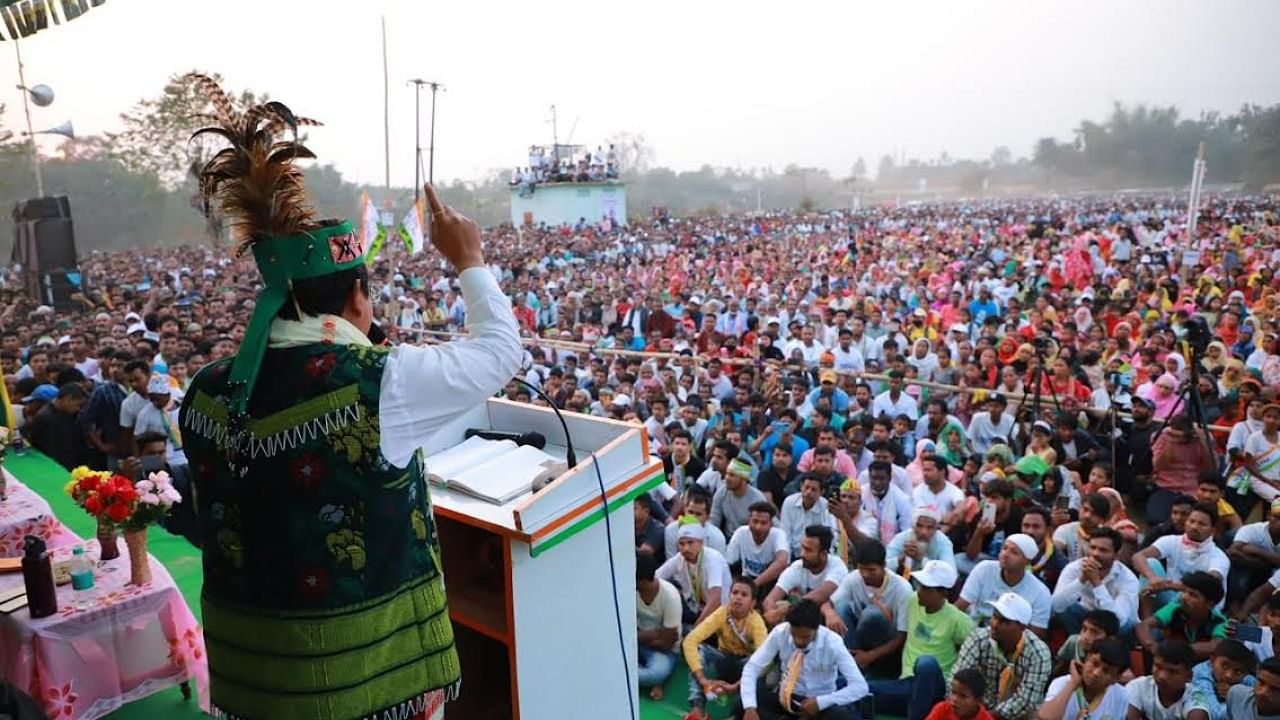
A total of 375 candidates, belonging to 12 political parties and Independents are in the fray for 60 Assembly seats in Meghalaya. But no party is contesting with an alliance or a seat-sharing arrangement even as coalition government has become a norm in the hilly Northeastern state.
With the parties fighting a "lone battle" against each other and some smaller ones focussing on community and region-specific issues again, leaders and political observers fear the repetition of a fractured mandate, something the state has witnessed since 1976. The fear has deepened with the smaller parties, having a track record of winning six to 20 seats in the past few elections, are focussing on community and region-specific issues in the elections.
"Elections in Meghalaya are fought on ethnic and sub-regional lines and personal loyalties, so the mandate cannot but be fractured. No political party in the state has access to all ethnic groups and the people in three hill regions, Khasi, Jaintia and Garo hills. Hence no one gets an absolute majority and the coalition government has become the norm. It is not going to be an exception this time too," H. Srikanth, a professor of political science at North East Hills University (NEHU), in Shillong, told DH.
The All Party Hill Leaders' Conference (APHLC) led by Williamson Sangma was the only party that got an absolute majority by winning 32 seats in 1972, immediately after Meghalaya became a state. "In 1976, however, the party split and the faction led by Williamson Sangma joined Congress," he said.
The United Democratic Party (UDP), which became an important ally in the Meghalaya Democratic Alliance (MDA) government led by the National People's Party (NPP) in 2018 with six seats, has fielded 46 candidates. The UDP was also an important ally in the Congress-led governments in the past. "This time our target is to get an absolute majority. Even if we don't, we will be the kingmaker," said a UDP leader. Although the party claims to represent all of Meghalaya, the party's support bases are mainly among the Khasi and Jaintia communities. The Garo National Council has put up two candidates with a demand for a separate state for the Garos. Chief Minister and NPP president Conrad K Sangma and TMC leader and former CM Mukul Sangma belong to the Garo community.
On Wednesday, Conrad exuded confidence that the NPP would script history this time by winning an absolute majority, the only party since 1972. "Fractured mandate has caused harm to Meghalaya's development. In the past five years, NPP has laid the foundation for the future of Meghalaya and provided a vision for the state's development for the next 50 years. So people must keep this in mind and give NNP an absolute majority," Sangma recently said.
NPP, although leads the MDA government in which UDP, BJP, HSPDP and a few others are partners, is contesting 57 seats on its own. BJP and Congress are contesting in all 60 seats while Trinamool Congress, led by Mukul Sangma, a Garo and Charlse Pyngrope, a Khasi leader, has put up candidates in 57 seats with a target to form their first government.
Mukul Sangma says people would vote for TMC as they voted for all other parties in the past but all failed to deliver. Mahua Maitra, TMC MP from Bengal on Monday said although NPP and BJP are attacking each other, they will be together after the polls like they did in 2018. The HSPDP is contesting 11 seats this time. The party bagged two seats in the 2018 elections. BJP won two seats in 2018 and has been appealing to people to ensure a BJP-led government this time.
Congress leader, Rahul Gandhi on Wednesday alleged that TMC was contesting the elections in order to help BJP in Meghalaya like they did in Goa.